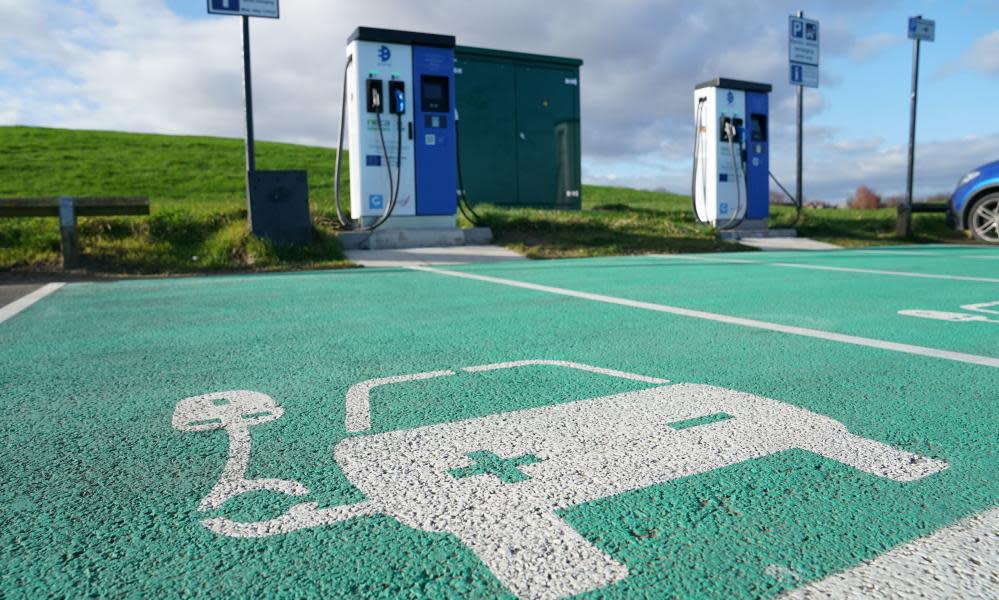Lithium find in Cornwall spurs hopes of regeneration'

Reserves of lithium described as “globally significant” have been discovered in hot springs within Cornwall’s historic tin mining area.
Initial results of testing suggest some of the world’s highest grades of lithium are to be found in geothermal waters in the far south-west of Britain, according to a mineral exploration company.
Cornish Lithium is now planning to build a pilot lithium extraction plant at its United Downs site at St Day, near Redruth.
The hope is that the find could lead to the commercial production of lithium in Cornwall and a much-needed boost to the economy in an area with pockets of high deprivation.
Related: Cornish copper find raises hopes for once 'richest square mile'
Lithium and other metals found in the geothermal waters are used in batteries for electric cars.
In a statement released on Thursday, the company said: “Initial results indicate some of the world’s highest grades of lithium and best overall chemical qualities encountered in published records for geothermal waters anywhere in the world.”
The company points out that the hot brine that the lithium is found in can also be used to create power. It said: “The same water can be used to generate zero-carbon electrical power and heat. As such these waters are rapidly becoming recognised as the ultimate ethical source of lithium.”
Related: Mining firm hopes to extract lithium from Cornwall's hot springs
Jeremy Wrathall, CEO & founder of Cornish Lithium, said: “This is an exciting step towards the realisation of low-carbon lithium extraction from geothermal waters in Cornwall.
“We now have increased confidence that these lithium-enriched geothermal waters can be found across Cornwall and believe that there is significant potential to replicate combined lithium and geothermal extraction plants in different locations across the county.”
Cornish Lithium is collaborating with a company called Geothermal Engineering Ltd, which is working on the production of power and heat from the hot granite rocks beneath Cornwall. Funding has been provided by the UK government’s Getting Building Fund to build a £4m pilot lithium extraction plant at United Downs.
As well as showing high concentrations of lithium, the tests reveal low concentrations of other dissolved minerals and metals that can make extraction difficult and expensive.
Wrathall, a graduate of the Camborne School of Mines in Cornwall, said: “These results show that Cornish deep geothermal waters, unlike others around the world, have low salinity, meaning much lower concentrations of elements such as magnesium and sodium. When these elements are present in high concentrations it can make it difficult and more expensive to separate out the lithium compounds.”
Rob Bowell, of SRK Consulting, said: “The lithium grades reported from the deep geothermal waters at United Downs are globally significant.”
Bowell, who has worked on lithium extraction projects across the world, added: “This is a fantastic opportunity for Cornwall to lead the charge on environmentally responsible extraction of this critical raw material in Europe and beyond.”
Cornwall has a long and proud mining history stretching back to the early bronze age. Reserves of copper, tin, zinc, silver and arsenic have all been exploited for many centuries.
The area around St Day and Gwennap was the richest copper-producing region in Cornwall (and the world) in the 18th and early 19th centuries, earning one portion the title of “the richest square mile on Earth”.
As well as making fortunes for mine owners, the industry had a profound effect on the cultural life and social history of the far south-west of Britain.
It gave the world the Cornish pasty – originally a wholesome and practical lunch for miners – and was a backdrop for Winston Graham’s Poldark novels, which were turned into television hits in the 1970s and again more recently.
In the face of competition from abroad and falling demand, mining declined in Cornwall.

 Yahoo News
Yahoo News 
